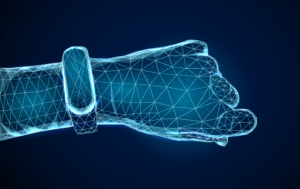Back to the Future of Clinical Trials
The COVID-19 pandemic has hastened the evolution of clinical development from the paradigm of a site-based trial into a dynamic model of remote biosensing that maximizes a safer home-based approach. Limited access to sites and patient reluctance to site visits are hindering the data collection required for study success. Ironically, clinical trialists have moved to an older trial model requiring less patient mobility, and preferably centered at home, but now with innovative next-gen remote biosensing technologies.

In a way, we’ve “gone back to the future” of clinical trials, for the better. The traditional snap-shot of trial assessments has been supplanted by the continuous stream of biometric data points, collected at home. We are finding that sometimes “less is not more,” but rather, “more is more.” The growing use of artificial intelligence algorithms and machine learning also provide advanced research tools for the analyses of extremely large data sets. Better sampling of health biomarkers, including blood pressure monitoring, continuous electrocardiograms (ECGs), glucose monitoring, and exercise/sleep activity, that are collected in a continuous data stream, captures fluctuations during the course of a patient’s daily activities and provides invaluable insights for clinical drug development.
Wearables and other patient-centric portable devices that remotely collect individual biometric data are transforming clinical trials. The amassed aggregate health data confirms trial safety and can be leveraged to evaluate the effectiveness of a medical therapy or drug, while delivering many other vital operational and analytical advantages. Traditional approaches in clinical trials have relied primarily on intermittent assessments of biometric data, usually performed at the trial site. With the development of continuous remote biosensing technologies and the integration of cloud-based storage and web portals, current remote wearable devices are ushering in a new era of virtual, hybrid, and decentralized trials.
Biosensors produce prodigious amounts of previously untapped health data for clinical studies. Medpace integrates this data into the overall study and harmonizes it to present strong regulatory cases.
The continuous collection of biosensor data can support endpoints and make a stronger regulatory case. Indeed, during the COVID-19 pandemic, the FDA has recommended contactless continuous remote monitoring using approved devices out of an abundance of safety. Moreover, the comprehensive data streams from digital biosensors impact study design, patient selection, and go/no-go decisions as well.
Concurrently, patient recruitment and compliance improves, as patients welcome fewer office visits and adhere more closely to the trial protocol requirements. Decreasing site visits by remote sensing devices reduces site and resource burden which impact cost savings tremendously. Coordinators and investigators at the sites now have deeper and more timely insight into the patients’ overall health and accurately track compliance for early re-engagement with those at risk of drop-out compared with traditional data-limited approaches.
Medpace seamlessly integrates the centralized collection and harmonization of data from wearables and remote devices into your clinical studies as part of our full service offering. The ability to coordinate all services under one roof provides an accountable and efficient platform – while reducing your need for duplicate management oversight. Learn more about Medpace’s wearable biosensing technology.